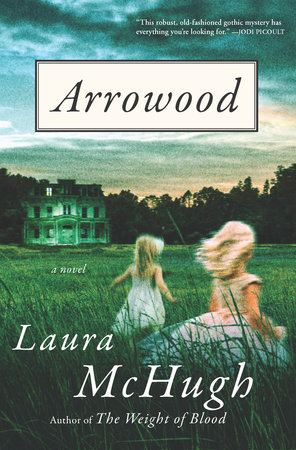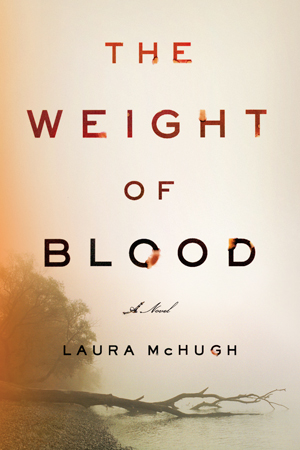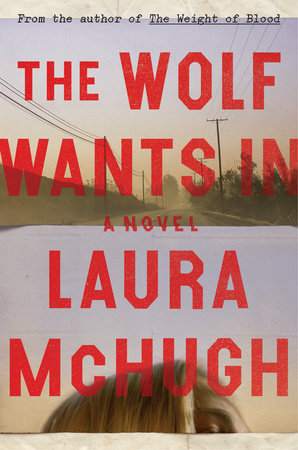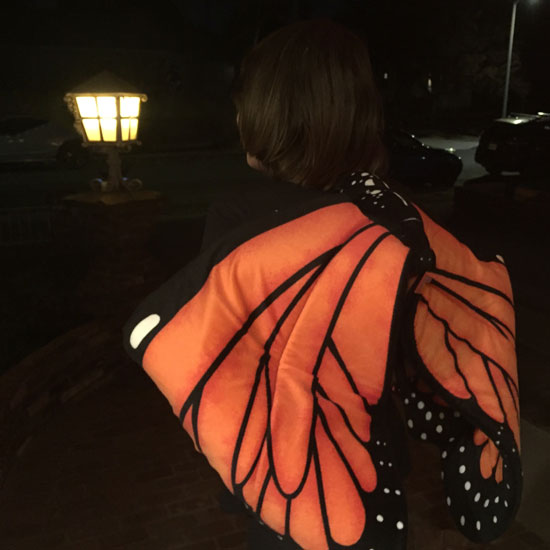

Now I don’t know if I’m sending Baguette to school or to the Somme.

I read a lot. I’ve always read a lot. Over the course of the pandemic, one of the few things about myself I’ve been able to hold onto was reading. I’ve become a heavy user of the public library over the past three years, and I don’t see any reason for that to change. I’ll write more about that later, but for now, here are some books I don’t like.
Wuthering Heights
I resisted reading it because I hate every adaptation I’ve seen. These are not people I want to spend time with. Then someone suggested reading it not as a romance, but as a horror story. I still hated it. Also, I don’t read or watch horror, so that probably didn’t help the way that person thought it would. (I recently read an updated version by Alice Hoffman. Much as I love her work — she’s one of my favorite authors — I hated her take on the story, too.)
Wide Sargasso Sea
I have read this book twice. I still have no idea what happens. Jane Eyre has been a favorite of mine since 4th grade, and during a re-read several years ago, I was surprised to realize that I cannot stand Rochester; in fact, I vastly prefer the parts of the book that do not include him. But I just don’t get Rhys’s book at all.
Play It as It Lays
I want to write a post about my somewhat complicated feelings about Joan Didion’s work, but I’ll start here, with this book. I first read it in college and didn’t like it. The characters seemed incomprehensible to me. I have read it at least twice since then, on the grounds that my perspective may have changed. It has not. I still find the characters incomprehensible. (All of this also applies to Candace Bushnell’s Sex and the City, except that I was long out of college by the time that was written.)
Wicked
Mr. Sandwich and I saw the musical about 10 years ago. I liked it so much, I bought the CD at intermission. At a book swap, I picked up a copy of the novel. One of the other women said, making a face, “It’s really different from the play.” I thought I was okay with that. Turns out I was not. Oz was a weird place, but this world is mean and nasty. There are scenes that I just found gross, and completely unnecessary. There are long stretches in time that are hard to follow. The characters I found compelling on stage are flat in the book. I’m really, really sorry I let this book in my head.
What books are you sorry you read, and why? Share away.
First up: The pandemic is not over. It’s not even the only viral problem out there.
That said, I’ve had a post with this title in mind for at least two years. Not everything that I was going to write then is still applicable now, but a lot of it is.
It’s hard to know what and how to write about at this point. The shutdown in March 2020 was so incredibly hard on Baguette, as every element of her routine was thrashed and trashed, and the (as it turns out, pointless) closure of parks and beaches and zoos and pools meant that all of the places we would normally go to help her recalibrate were off-limits.
It was bad.
She worked so hard, and we are so proud of her. She did not care for online school at all, but her love of school is so strong that she tried anyhow. Her 1:1 classroom aide and I spent the spring of 2020 just getting her used to the idea of Zoom, which she hated. She still hates it. But by that fall, she could push through to see her teacher and classmates and participate in lessons.
We had the help first of a retired special education teacher and then of a phenomenal woman who came in to support her through the school day and help her navigate computer systems and apps and activities.
We had car rides and walks to nowhere that at least offered a change of scene.
We had visual schedules, for the day as a whole and for school.
We had Rudy.
We had the swing in our neighbor’s front yard, which was the only swing she could use without driving to a different county.
We had Disney’s Beauty and the Beast, which Baguette watched every single day for over a year. For Halloween 2020, she trick-or-treated as Belle. The morning of Baguette’s 11th birthday in 2021, her aide–the phenomenal woman mentioned above–arrived bearing an enormous Beauty and the Beast cake (I pushed my basic grocery store cake to the back of the refrigerator, because it was not worthy).
We had splash pools and slip-n-slides, which were the only way she could get any water time until the summer of 2021.
It was not enough.
We are still traumatized, all of us. (Well, not Rudy.) Baguette has been back at school in person since the spring of 2021, but the inadequacy of that online learning is still affecting her.
It is still bad.
The parks and beaches and pools are open again–but that period was so damaging. It’s going to take much longer to recover from than it did to experience.
But at least there’s Rudy.
There’s never a good time to say goodbye to your pet, and we miss Butch very much. Baguette talks about him and Sundance and Wicket all the time, and our consolation is that she clearly is happy when she thinks about them.
Have you ever tried to adopt a pet during a pandemic? Turns out, it’s not easy. The shelters are closed, or offer very limited access, and LOTS of people are looking for companionship. Dogs come in, dogs go out. This is great for the dogs! But it was a challenge for us.
And our needs are a bit more specific than many, because of Baguette. So Mr. Sandwich called a lot of area shelters and asked about a lot of dogs, and either they weren’t available or we knew just from the phone call that they were not a good match for our family.
We started looking at medium-sized dogs (the small ones are getting adopted lightning-fast), still keeping an eye on temperament. And while we have a real soft spot for old dogs, we have lost three in under five years, and that is a lot of grief. We also started looking at slightly younger dogs — still adults well beyond the puppy stage, but younger than the senior dogs we have adopted in the past.
We got lucky.
Rudy is a 7-year-old dog who is part Corgi, part we don’t know, part we really have no idea. He cannot stand other dogs, but he loves people, and he absolutely adores Mr. Sandwich. He is calm about food, he is passionate about going on walks, he has not chewed on plushes or slippers, he absolutely cannot understand why we keep getting up in the middle of the night. (Neither can I, Rudy. Neither can I.)
We’ve had Rudy for almost four weeks, and we are delighted to have him in the family. And it’s clear that he’s delighted to have a family. Win-win.
We said goodbye to Butch on Saturday. He had a good run — he survived Sundance, who we lost to brain lesions in February 2019, by more than a year. We adopted them in 2015, and gave them both the best we could. Dogs give you so much more, though.
Butch had been in decline for a while, and for the past couple of weeks we had been working hard to keep him eating. But eventually he would eat — and he could still navigate the dog door and the back steps — so we continued to seek out ways to tempt his appetite and keep him as strong as we could.
That morning, though, his breathing changed. Overnight he went from bouts of panting to constant panting, his old lungs and enlarged heart unable to move the oxygen he needed through his body. We knew.
We called the in-home vet, who was able to come just a few hours later. Butch got that chocolate ice cream he always thought we were denying him. We talked to Baguette and had her say goodbye, and when it was done, she told me what we had been telling her: He’s with Sundance.
So Parker has reunited with Longabaugh, as the last of the Wild Bunch rides off into the sunset.

Baguette loves a good cottage.
In fact, Baguette loves a cottage so much that sometimes she will just ask to go to one. We’re pretty sure a big part of the appeal is that it’s a cozy space that has a LOT less stuff in it. About a year ago, she told me that she wanted to “go to the house that you carry on your back.” I told her that this was a fantastic description of a cottage and how it made her feel — and let her know that she could use the word “cottage” for that. Recently we spent some time in the foothills of the Sierra Nevada mountains, and let Baguette know that we were going to a cabin, which was a “mountain cottage.”
Baguette loves a good cabin, too.

I’ve written in the past about how our travel patterns don’t match what Mr. Sandwich and I envisioned when we married, much less how either of us traveled growing up. And that’s okay, because what we do works for the three of us. But we are always rethinking the details.
What makes a rental space work for us? For starters, a distinct living room with plenty of seating — including at least one sofa — is important. Baguette likes to lounge (and will commandeer a sofa) so having a couple of comfortable chairs in addition means that all three of us can enjoy the space together.
The closer we can get to real beds for everyone, the better. That often means that we’re looking for a one- or two-bedroom space, but we’ve found a couple of large studios that work well for us. Sofa beds can be tricky, but recently we’ve rented one place that had a futon for the second bed, and another boasting a Murphy bed–both of which worked just fine for Baguette.
We’re pretty flexible on the bathroom. Baguette prefers baths to showers, but as long as we all have a way to get clean, we’re fine.
Kitchens: It turns out that one of our must-haves is a microwave. That may not sound like a big deal, but every now and then we run across a rental that doesn’t have one. Apartment-sized fridge? We can work with that. Two-burner stove? Not ideal, but not a huge problem. A dishwasher is nice, but far from essential. But we have to have that microwave.
The other thing about rental kitchens is that you never know how they’re going to be equipped — but you can probably count on the knives being mediocre at best. Our latest pre-vacation project is assembling a “kitchen box” with a few tools and non-perishables that we’ll take with us, to be sure that we’ll have the things we like to use when cooking.
I found a number of recommended take-these-to-your-rental kitchen tools lists online, and they seemed pretty thorough, and generally reasonable. I used them as a starting point and adapted based on how we cook (people who use zesters would want to have one on hand, but it’s not a tool we routinely use at home — so we won’t be taking one on vacation). Here’s how we’re planning on packing our travel kitchen box:
Most perishable items we’ll buy on location; we’re usually staying within striking distance of a major grocery store. But that ice cream? That’s what Baguette wants for dessert, and no substitutions will do. We’ll also have a small cooler so that we can be sure we have her ice cream of choice.
*Coffee maker. Sigh. A lot of rentals come with coffee makers, but I have come to prefer the French press coffee I make at home, and I’m just dubious about how often those coffee makers are getting cleaned. The thing is, I don’t want to take my French press on vacation. It’s glass, and I don’t want to risk breaking it. I’ve tried a travel version that was metal, and the resultant coffee was . . . kind of terrible. More recently, I’ve been trying this to make pour-over coffee, and so far it’s just okay. But I want to have coffee AND I don’t always want to go out for it, so hopefully I’ll come up with a travel method that works.
What are your vacation must-haves?
If you haven’t yet discovered Laura McHugh, then hie thee to the bookstore or library and dive right in. Or, like me, you can listen to the audiobooks. I’m not going to quibble about the medium.
The first of her books that I read was actually her second, Arrowood. The story of a young woman at a turning point in her life, coming to terms with her family’s tragic past, is a gripping slow build. Arden Arrowood’s life was forever changed by the disappearance of her younger twin sisters–but what happened that day?
A little later, I read her first novel, The Weight of Blood. It centers on another mysterious disappearance and how it has affected the family and community, but the characters and plot are completely different from Arrowood.
And now I’ve just started her third, The Wolf Wants In, and it hooked me immediately. Sadie Keller is trying to find the truth about her brother’s death, and Henley Pettit wants nothing more than to leave her family and small town behind. What’s going to happen? I can’t wait to find out.
McHugh centers her novels on themes and issues that could be described as “ripped from the headlines” — abduction, trafficking, addiction — but her approach is so thoughtful and human that the lurid feel of that phrase doesn’t apply to her work at all. She creates complex, imperfect characters who feel very real, and about whom I find myself caring very much. The books are moody and atmospheric, but in ways that feel very organic.
She also provides a strong sense of place. The settings are an integral part of the stories and characters, and I love that the books take place in different parts of the Midwest; cities, particularly New York and Los Angeles, are so prominent in American pop culture that I always appreciate getting to know a different location.



The books aren’t part of a series, so you don’t need to read them in any particular order. Just read them. I think you’ll be glad you did.
To be honest, we never know what Halloween is going to bring. We’ve seen enough variation to know that the best approach is to let Baguette set the pace. Some years she’s wanted to go to a few houses for trick-or-treating; some years she just wants to walk around the block. Some years she’s worn a costume that could be easily identified as a costume; some years she hasn’t.
This year, Baguette started talking about Halloween in August. She told us she wanted to be a man. Then she wanted to be a wizard. Then she wanted to be a witch. Then she wanted to be a Christmas tree.
We told her that all of these were great ideas.
And then she stopped wanting to talk about Halloween. As we got into October, we would ask her what she wanted to be, and she would say, “No, thank you.” So we came up with the makings of a few costumes, and figured we’d let her pick one, or more, or none.
Finally, we asked her aide to ask her, and the aide let us know that Baguette wanted to be a cat. The good news? We had anticipated this, and had purchased a cat-ear headband. Mr. Sandwich and I made her a tail. She already had a black shirt and black leggings.
Then, as I was packing up her costume for her to take to school, I realized that Baguette associates the black shirt and leggings combo with Minnie Mouse, because in the past she’s wanted to wear them under her Minnie Mouse dress. So I put that in, too, along with Minnie ears.
She was Minnie at the parade. And at home?
Turns out, this is a year she didn’t really want to go trick-or-treating. And she kind of wanted to go for a walk, but not enough to leave the porch. But she did give another costume a try.

In the end, she just hung out in her wings on the porch. And that’s fine, because it was the good time she wanted to have.
But how on earth is it November?
Friday nights are tough at the Sandwich house. Baguette is exhausted from the long week. We’re tired. We’ve learned it’s a terrible night to go out to dinner, because Baguette is just not up for it, no matter what restaurant we pick.
So we usually wind up scrounging. I’ll eat a peanut butter and jelly sandwich (or two). Mr. Sandwich will eat hot dogs or a quesadilla.
But this one Friday? I was too tired for that. I said, “What do you think about ordering pizza?” So we did. And that was good. And it got me thinking.
What about making Friday Night Pizza a regular thing? Not ordering it–I don’t want to spend $25 on a pizza every week, and even interacting with a delivery person seems like too much at that point.
So we started making pizza. Not entirely from scratch–we buy the crusts, and after a few experiments have settled on Boboli–but I make sauce and Mr. Sandwich grates mozzarella and slices pepperoni. Maybe I’ll cut up some vegetables, maybe I won’t. Sometimes we make our own small pizzas; sometimes we split a larger one.
And now it’s become something I really look forward to. It’s not fancy at all, but it’s something we do together at the end of a long week. It’s cozy. It tastes good. It’s nice.
It’s Friday Night Pizza.

I’ve been reading Elswyth Thane’s Williamsburg series for most of my life, some of them more times than others. Recently I decided to read all seven of the books, and while some of my opinions hold, a few have changed dramatically.
How so? Let’s discuss. (Note: Spoilers don’t necessarily abound, but exist below.)
First up is Dawn’s Early Light, set in the years leading up to and during the American Revolution. Julian Day, a young Englishman, comes to Virginia and becomes a schoolteacher in Williamsburg, then the capital of the colony. He is taken in by a local family, makes lifelong friends, falls in and out of love, encounters a variety of historical figures, and finds himself unexpectedly caught up in the Patriot cause. The refined and rebellious St. John Sprague and his younger sister Dorothea, the arrogant and beautiful Regina Greensleeves, and the impoverished and steadfast Tibby Mawes all shape his experiences, and each has their own journeys and arcs. This has been one of my favorite novels since I first read it in elementary school, and I continue to love it–and it doesn’t hurt that late colonial America has always been one of my favorite eras.
Next is Yankee Stranger. Three generations later, the Day and Sprague families have intertwined and continue to live in Williamsburg (and Richmond). Eden, one of Tibby’s great-granddaughters, is swept off her feet by visiting New Jersey reporter Cabot Murray just as the Civil War breaks out. The suffering of soldiers and civilians alike is at the forefront for much of the story. I’ve usually found Eden to be a very passive heroine, but on this re-read I had a better appreciation for the tensions she experienced and felt that the risks she took made more sense for her character.
Ever After, third in the series, is the book in which Williamsburg begins to recede. The novel follows two storylines leading up to the Spanish-American War: Fitzhugh Sprague, who is supposed to join his father’s Williamsburg law practice but instead moves to New York City to become a reporter and composer, and Bracken Murray, who travels to England with his sister and their aunt and meets a young English girl. A very young English girl. Until this re-read, I would have said that Bracken was my favorite of Thane’s heroes. This time? Bracken disturbed me immensely. He meets Dinah Campion when she is 15, and methodically and intentionally grooms her. In contrast, the feckless and often frustrating Fitz takes a young (not quite as young) singer under his wing, but is focused on helping her escape a predator and become self-sufficient.
In The Light Heart, I found my new favorite heroine (of this series). I still love Tibby, but Phoebe Sprague–Fitz’s sister–really took me by surprise this time. She’s funny and smart and modern (she has her own apartment, and, if you read between the lines, lovers), she’s a novelist who is financially and socially independent, and she is a friend who goes above and beyond to help those she cares for. I don’t agree with all of her decisions, but Thane makes those decisions easy to understand and sympathize with.
But then. Then there’s Kissing Kin, set during and after World War I. This has always been my least favorite book in the series, and its chief protagonist, Richmond-born Camilla Scott, my least favorite heroine. For the life of me, I do not understand Camilla at all. She has an oddly strong bond with her twin brother Calvert (the only other Scott we meet, because apparently that side of their family doesn’t matter), in a way that reads more like . . . not quite obsession, but definitely fixation, and doesn’t seem to be reciprocated (although maybe that’s because I didn’t feel like Calvert was a fully realized character at any point). She falls instantly and irrevocably in love with a man who seems to have no personality at all. She neglects relationships and lets time pass unaware of the cost, and I suppose reflects people who had trouble finding their way after World War I–but in a manner that is very hard to sympathize with. Particularly coming on the heels of Phoebe, Camilla is a tremendous disappointment as a character. This was the book that was hardest to finish because I was just so frustrated with Camilla. She finds love in the end, but I couldn’t help feeling like Thane had put those two characters together because she couldn’t figure out what else to do with them.
The final two books, This Was Tomorrow and Homing, are set immediately before and during the early years of World War II. Because they follow the same characters during a fairly compressed time frame, they might almost have been a single novel. Williamsburg is now more of a refuge (at the end of Homing, one character is sent there from England for safety), and there’s an unsettling note of reincarnation and destiny that, because of the relative ages of the characters, takes one relationship back into disturbing territory. This time I was really struck by how juvenile the Spragues and Days and Campions in these two books seem in comparison to their counterparts in earlier novels, even though they tend to be a few years older.
Additionally, I now am much more aware of Thane’s sexism (flirtatious young women need to be dominated and controlled by strong men for their own good) and racism (her Black characters are stereotypes; one character and her daughter are unredeemable because they may have Indian as well as English heritage, and both women are shown to lack courage; and everyone is relieved to learn that no, that secondary character is not actually Native American). In Thane’s world, the only thing to be is White–and particularly English. The French are untrustworthy (except for in Dawn’s Early Light) and the Germans are without exception brutal.
On a less societally disappointing note, one of my dissatisfactions throughout the series is with character deaths.
The end result is that I think Thane didn’t know how to write deaths, and pushed them to the side to avoid dealing with the challenge.
I still love the series, and I know I’ll read all of these books again (even Kissing Kin, I suspect), although I definitely read them differently now than I did a decade or two ago.